detail profile tetsuro tamba

Tetsuro Tamba
丹波 哲郎
atau dikenal sebagai
Riwayat Hidup
Tetsuro Tamba (July 17, 1922 – September 24, 2006) was a distinguished Japanese actor known for his versatile talent across five decades.
Recognized globally for his portrayal of Tiger Tanaka in the iconic 1967 James Bond film "You Only Live Twice," Tamba's cinematic journey was a remarkable blend of cultural bridges.
Before embarking on his acting career, Tamba worked as an interpreter for the Allied Powers' Supreme Commander.
Graduating from Chuo University in 1948, he later joined Shintoho company, making his debut in the film Satsujin Yougishain in 1951.
Tamba's impact on Western audiences extended beyond Bond, with standout performances in films like Bridge to the Sun and The 7th Dawn.
He earned acclaim in Japan as well, most notably as the lead in police dramas like Key Hunter and G-Men '75.
His talents weren't confined to the screen alone.
Tamba lent his voice to characters like the Cat King in Studio Ghibli's The Cat Returns and graced historical roles in television dramas, leaving an indelible mark on period pieces.
In 2005, Tamba faced health challenges but continued to contribute until the end.
Sadly, he passed away in Tokyo at 84 due to pneumonia on September 24, 2006.
His legacy lives on through his son, actor Yoshitaka Tamba, while his last appearances in the 2005 Taiga drama Yoshitsune and the 2006 film Sinking of Japan remain a testament to his enduring impact on Japanese cinema and beyond.
Info Pribadi
Peran Yang Di Mainkan Tetsuro Tamba
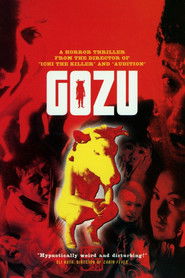 Minami mistakenly kills a gangster associate...
Minami mistakenly kills a gangster associate...Gozu 2003
Minami mistakenly kills a gangster associate of his named Brother. Almost as soon as the murder takes place, the body of the deceased man is gone, prompting Minami to conduct a search. While looking, he finds a mysterious isolated hotel where he decides to take a rest. Not only are the front desk clerks a bit strange, but even the ambiance feels unusual. Minami soon realizes he may have gotten more than he bargained for.
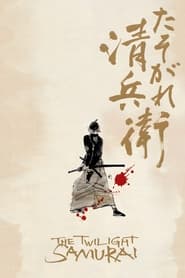 Seibei Iguchi leads a difficult life...
Seibei Iguchi leads a difficult life...The Twilight Samurai 2002
Seibei Iguchi leads a difficult life as a low ranking samurai at the turn of the nineteenth century. A widower with a meager income, Seibei struggles to take care of his two daughters and senile mother. New prospects seem to open up when the beautiful Tomoe, a childhood friend, comes back into he and his daughters' life, but as the Japanese feudal system unravels, Seibei is still bound by the code of honor of the samurai and by his own sense of social precedence. How can he find a way to do what is best for those he loves?
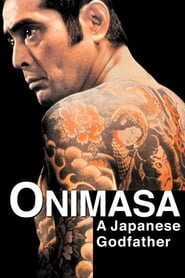 Onimasa is the egocentric boss of...
Onimasa is the egocentric boss of...Onimasa: A Japanese Godfather 1982
Onimasa is the egocentric boss of a small yakuza clan on Shikoku Island, whose criminal duties conflict with his self-image as a chivalrous samurai. His struggles with his boss, the Shikoku Godfather, and the tumultuous life of his adopted daughter, Matsue, form the backdrop of this epic tale of justice, obedience, and bloody vengeance.
 The corruption in the Sung Dynasty...
The corruption in the Sung Dynasty...The Water Margin 1972
The corruption in the Sung Dynasty of 11th century China is so rampant that it inspires a band of Oriental Robin Hoods - the Honorable 108. Mountain bandits who nevertheless live by a scrupulous code of conduct, the Honorable 108 pledge to end the repression of the brutal overlords.
 The Americans are swiftly closing on...
The Americans are swiftly closing on...The Battle of Okinawa 1971
The Americans are swiftly closing on Okinawa, an island just south of the Japanese mainland. The Imperial command sends top generals and several army divisions to defend it at all costs. The mission quickly degenerates as vital resources and troops are diverted to other islands. After a civilian evacuation ends in tragedy most of non-combatants are forced to remain on the island. Many convert to soldier status. Tokyo sends mixed messages that squander time and resources, as when they order the defenders to build an airstrip for aircraft that never come. The truth soon becomes obvious: the high command decides that the island cannot be held and effectively abandons the Okinawan defenders. When the Americans land many troops are deployed in the wrong places. As the slaughter mounts, a suicidal attitude takes hold. Okinawa becomes a death trap, for civilian volunteers and non-combatants as well.
 A mysterious spacecraft captures Russian and...
A mysterious spacecraft captures Russian and...You Only Live Twice 1967
A mysterious spacecraft captures Russian and American space capsules and brings the two superpowers to the brink of war. James Bond investigates the case in Japan and comes face to face with his archenemy Blofeld.
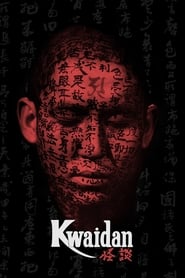 Taking its title from an archaic...
Taking its title from an archaic...Kwaidan 1965
Taking its title from an archaic Japanese word meaning "ghost story," this anthology adapts four folk tales. A penniless samurai marries for money with tragic results. A man stranded in a blizzard is saved by Yuki the Snow Maiden, but his rescue comes at a cost. Blind musician Hoichi is forced to perform for an audience of ghosts. An author relates the story of a samurai who sees another warrior's reflection in his teacup.
 A sadistic Daimyo feudal lord rapes...
A sadistic Daimyo feudal lord rapes...13 Assassins 1963
A sadistic Daimyo (feudal lord) rapes a woman and murders both her and her husband, but even when one of his own vassals commits suicide to bring attention to the crime, the matter is quickly hushed up. Not only will there be no punishment, but because the Daimyo is the Shogun's younger brother, he will soon be appointed to a high political position from which he could wreak even more havoc. Convinced that the fate of the Shogunate hangs in the balance, a plot is hatched to assassinate the Daimyo. The two most brilliant strategic minds of their generation find themselves pitted against each other; one is tasked to defend a man he despises, and has a small army at his disposal. The other is given a suicide mission, and has 12 brave men. They are the 13 Assassins.
 Downonhisluck veteran Tsugumo Hanshir enters the...
Downonhisluck veteran Tsugumo Hanshir enters the...Harakiri 1962
Down-on-his-luck veteran Tsugumo Hanshirō enters the courtyard of the prosperous House of Iyi. Unemployed, and with no family, he hopes to find a place to commit seppuku—and a worthy second to deliver the coup de grâce in his suicide ritual. The senior counselor for the Iyi clan questions the ronin’s resolve and integrity, suspecting Hanshirō of seeking charity rather than an honorable end. What follows is a pair of interlocking stories which lay bare the difference between honor and respect, and promises to examine the legendary foundations of the Samurai code.
 Young Haru rescues a cat from...
Young Haru rescues a cat from... Theres only one way to stop...
Theres only one way to stop...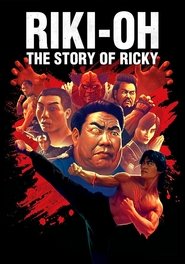 In 2001 where all correctional facilities have...
In 2001 where all correctional facilities have...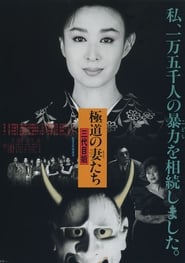 Upon the passing of the Sakanishi...
Upon the passing of the Sakanishi...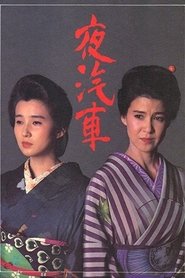 A woman faces betrayal which tests...
A woman faces betrayal which tests... Set in the icy wilderness of...
Set in the icy wilderness of...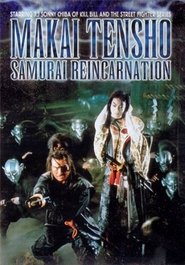 After surviving the slaughter of many...
After surviving the slaughter of many...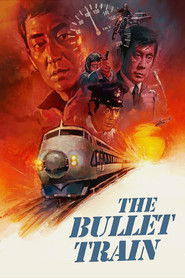 A Japanese bullet train is threatened...
A Japanese bullet train is threatened...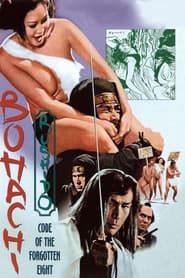 A Ronin with a death wish...
A Ronin with a death wish... In the teeming black markets of...
In the teeming black markets of...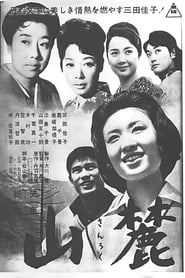 A story about the lives of...
A story about the lives of...